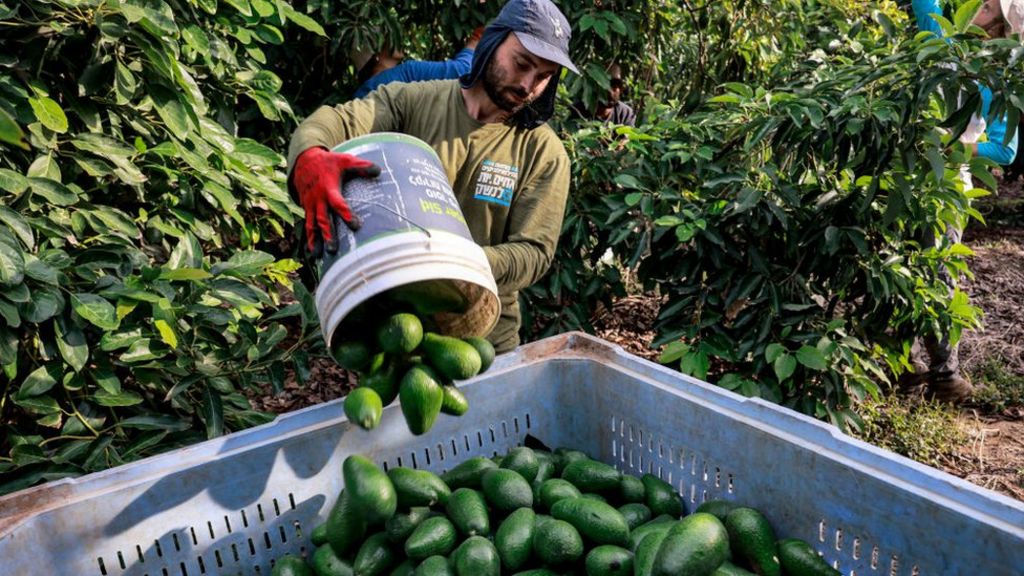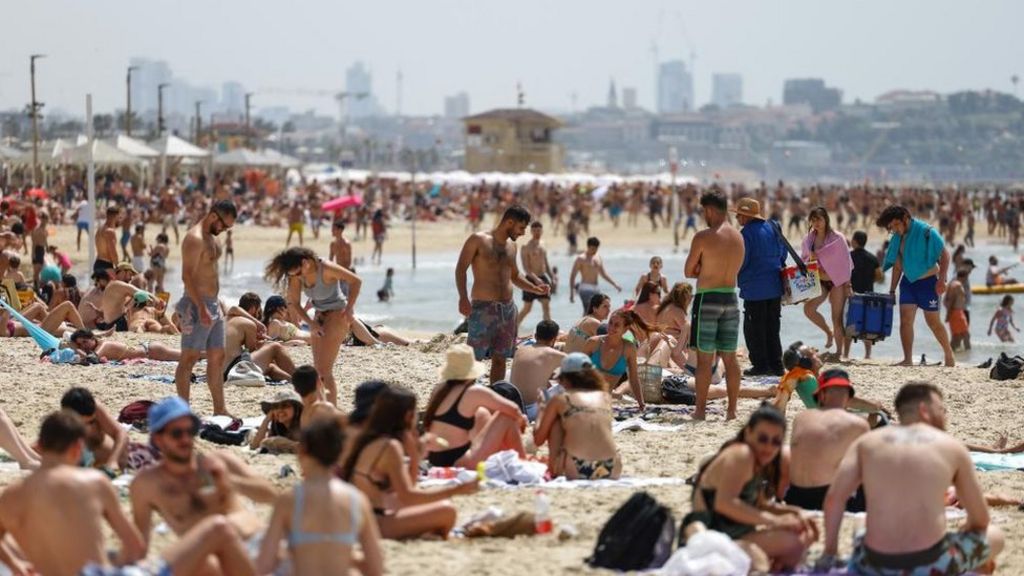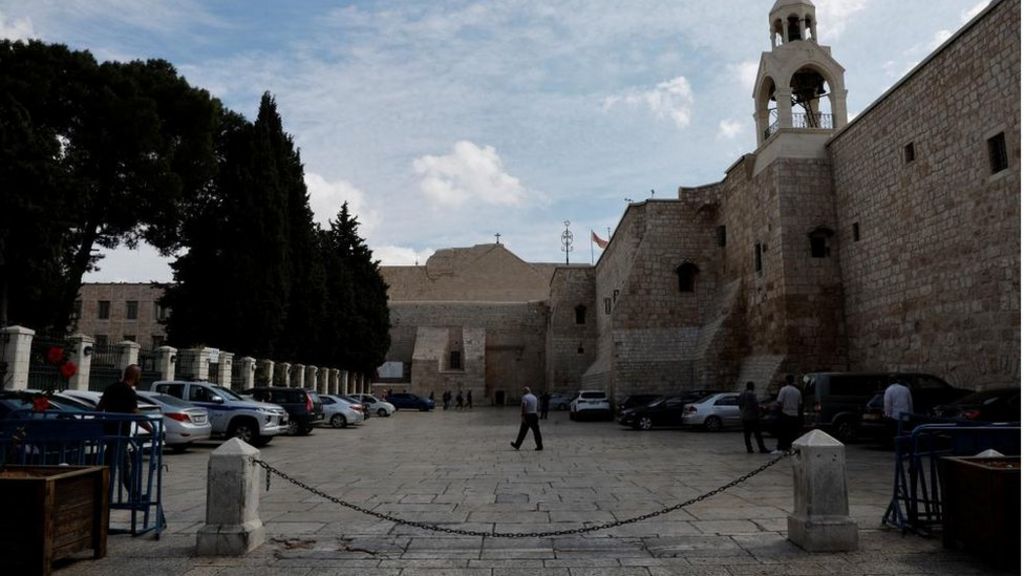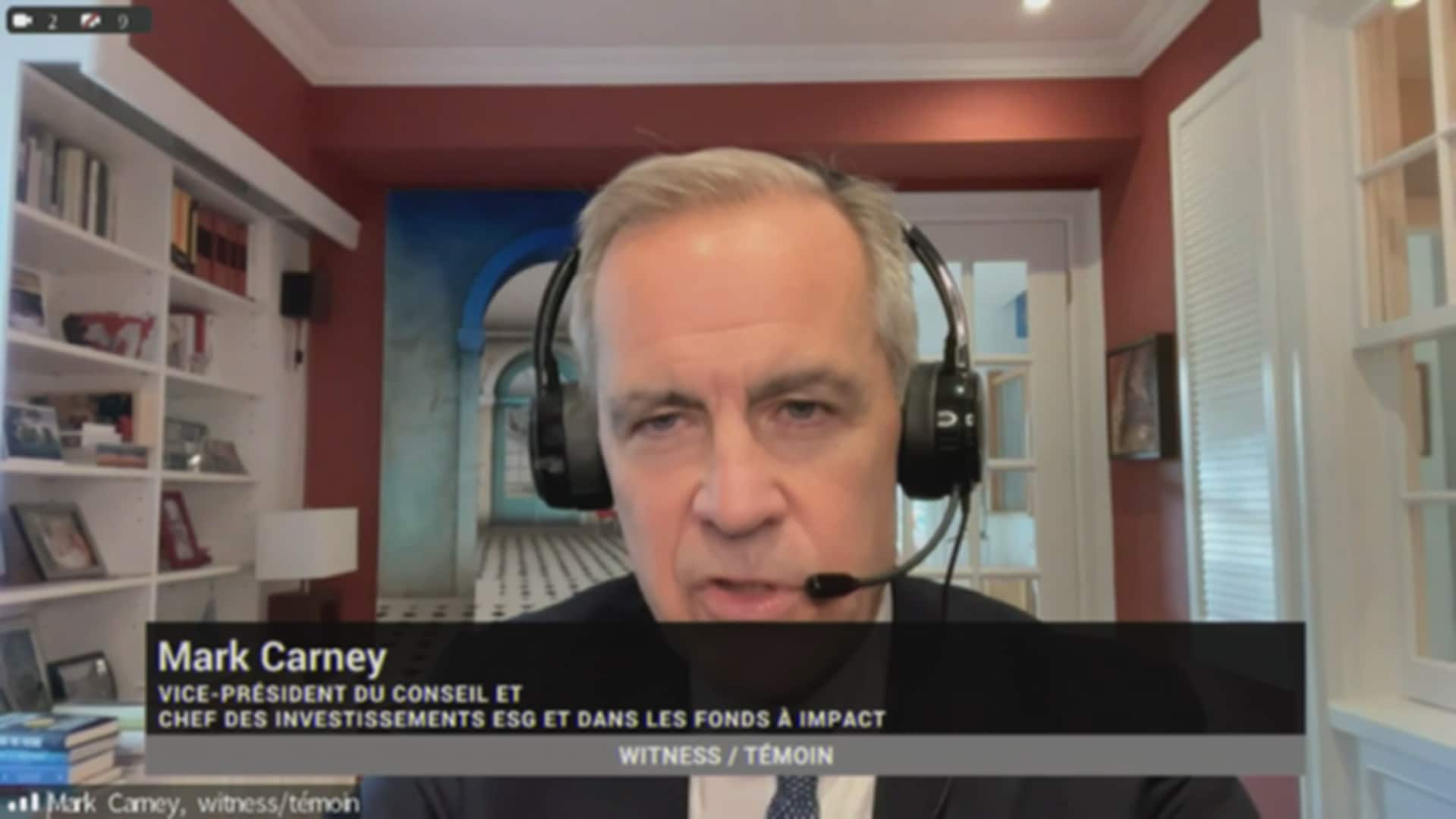Economy
The state of Canada's economy and whether a recession is a 'necessary evil' – CBC.ca
Like a convertible speeding down the highway, what was a red-hot economy is showing signs of tapping on the brakes.
As pandemic restrictions lifted over the last 12 months, all the pent-up demand for shopping, traveling and overall spending began to spill out — with inflation rising to record levels.
Now, with every passing day, there is more talk about the need for an economic cool-down, which is why a looming recession could be right around the corner.
Finance Minister Chrystia Freeland is already warning of “difficult days ahead” for the economy, while some finance experts suspect there’s a 70 per cent chance of a recession and it could happen in early 2023.
All that speculation of a recession sparks painful memories of what many felt in the 1980s and again during the financial crisis about 15 years ago. Those were deep downturns with ripple-effects throughout the country and across businesses big and small.
A recession this time around is not supposed to be nearly as bad, more of a reset or a pause in growth to rein in rampant inflation, supply chain problems, and labour shortages.
Nobody wants a recession, but experts say it might be the medicine that’s needed to get back to what people normally expect when they’re looking for a job, buying a home, or planning their household monthly budget.
There are many ways to judge the health of the economy and where it’s headed, so here’s a look at some of the key indicators and what they’re showing.
Economy has stalled
At this point, the country’s economy is likely no longer growing, but not shrinking either. Instead, it’s at an inflection point. A potential calm before the storm clouds roll in.
Unfortunately, the most recent data is from back in July, so it’s a bit dated. The economy grew slightly that month, but continued the trend of minimal growth after plenty of momentum during the first half of the year.
Many people are starting to tighten up on how much they spend. Retail spending is up, but that’s likely because of inflation. Basically, people aren’t buying more, they are just having to pay more for what they purchase.
The latest retail sales figures are for August, which show an increase. Still, economists say retail sales have likely peaked and they see signs that consumers are beginning to pull back on spending in the face of escalating inflation and borrowing costs.
“I’m looking a lot at retail sales,” said Charles St-Arnaud, chief economist at Alberta Central, which represents the province’s credit unions.
“If we get into a recession, it will come from the consumer side,” he said.
Business community pessimistic
Take just one look at how the stock markets have fared this year and you’ll quickly know how investors and the business community are feeling about the economy.
Stock markets are responding to all the economic gloom and investors anticipate there’s more pain to come.
The TSX is down more than 12 per cent so far this year, while the major U.S. stock markets have lost even more value.
Overall business sentiment has softened, according the a recent Bank of Canada survey, with many companies expecting slower sales growth and a majority say a recession is likely in the next 12 months. Manufacturing activity is falling too.
Amazon founder Jeff Bezos has said it’s time to “batten down the hatches,” while Goldman Sachs CEO David Solomon said there’s “more volatility on the horizon” and a likely recession.
Former Bank of Canada and Bank of England governor Mark Carney told a Senate of Canada committee that Canada likely will head into a recession next year but will fare better than many other countries and bounce back faster.
Help wanted
As a trucking and logistics company, the Mullen Group headquartered in Okotoks, Alta., is having one of its best years since its inception in 1949. As the economy goes, so does the company’s fortunes.
While businesses have struggled to find enough workers this year, many have caught up, including the Mullen Group, which is now fully staffed, including enough truck drivers. There’s no need to hire more people as the company begins to experience a bit less demand for its services, especially from the retail sector.
“We’re seeing cracks, we’re seeing some slowdown, we’re seeing consumers be a little more cautious right now with their spend,” said chief executive Murray Mullen.
“Recessions are a time just to pause and get things back in balance,” he said. “Sometimes it’s a necessary evil.”


Canada added 21,000 jobs last month, pushing the jobless rate down to 5.2 per cent.
“We’re literally in the tightest labour market we have seen in decades and at the same time prices [are] really high. So you really don’t want to have what we call a wage-inflation spiral situation,” said George Jia, an associate professor of economics at the University of Prince Edward Island.
Unstable housing market
As mortgage rates have climbed this year, real estate prices have fallen in many parts of the country.
In fact, both sales and average prices have tumbled.
Average selling prices are down more than 20 per cent from an all-time high in February, and down 6.6 per cent since last year. The number of sales are down by more than 30 per cent compared to one year ago.
“Canada’s economy has been driven partially by the housing market boom for awhile now,” said Jia, who recommends people pay attention to the overall health of the industry, beyond real estate figures.


After a surge in construction in 2021, housing starts are down about five per cent in the six largest cities during the first half of this year.
Like the stock market, the state of the housing market can often indicate the direction the economy is headed.
Staying afloat
It seems every month, people are getting squeezed even more. As the cost of living has increased, including grocery store prices and mortgages, some people aren’t able pay their bills.
The number of insolvencies remain quite low, but they are rising and there are other signs of continued problems.
In recent months, there has been a sharp rise in the number of consumer proposals — a renegotiation with creditors to repay debts — which suggests a rise in households struggling with managing their debt.
It’s no secret many people are taking a financial hit to their wallet mainly because of inflation and rising borrowing costs. Considering the high levels of household debt in the country, some experts anticipate the bankruptcy rates to keep marching up.


For St-Arnaud, with Alberta Central, the question is whether the strong job market and the massive amount of savings accumulated during the pandemic, which he estimates at $320 billion, will provide some relief to financial challenges many are facing.
“We’re already starting to see households reduce their level of savings to keep their level of spending,” he said. “If there is a big increase in the unemployment rate, then more households will run into more problems.”
The chief economist of the International Monetary Fund is warning that Canada faces economic challenges in the months ahead as concerns loom about a potential recession.
Economy
'We need a miracle' – Israeli and Palestinian economies battered by war – BBC.com


More than six months into the devastating Gaza war, its impact on the Israeli and Palestinian economies has been huge.
Nearly all economic activity in Gaza has been wiped out and the World Bank says the war has also hit Palestinian businesses in the occupied West Bank hard.
As Israelis mark the Jewish festival of Passover, the much-vaunted “start-up nation” is also trying to remain an attractive proposition for investors.
The cobbled streets of Jerusalem’s Old City are eerily quiet. There are none of the long queues to visit the holy sites – at least those that remain open.
Just after Easter and Ramadan and right in the middle of Passover, all four quarters of the Old City should be teeming with visitors.
Just 68,000 tourists arrived in Israel in February, according to the country’s Central Bureau of Statistics. That’s down massively from 319,100 visitors in the same month last year.
While it may be surprising that any visitors pass through Jerusalem at a time of such tension, many of those who do are religious pilgrims from across the globe who will have paid for their journeys well in advance.
Zak’s Jerusalem Gifts was one of only a handful of stores on Christian Quarter Street in the Old City, which is situated in occupied East Jerusalem, to have bothered opening up on the day I passed by.
“We’re only really doing online sales,” says Zak, whose business specialises in antiques and biblical coins.
“There are no actual people. The last week, after the Iran-Israel escalation, business dropped down again. So we are just hoping that after the holidays some big major miracle will happen.”
It’s not just in Jerusalem’s Old City that they need a miracle.
Some 250km (150 miles) further north, on Israel’s volatile border with Lebanon, almost daily exchanges of fire with Hezbollah since the war in Gaza began have forced the Israeli army to close much of the area and 80,000 residents have been evacuated further south. A similar number of Lebanese have been forced to leave their homes on the other side of the border.
Agriculture in this part of Israel is another economic sector that has been hit hard.
Ofer “Poshko” Moskovitz isn’t really permitted to enter his avocado orchard in the kibbutz of Misgav Am because of its proximity to the border. But he occasionally ventures in anyway, walking wistfully among the trees, to gaze at all of his “money falling on the ground”.
“I must go to pick in the orchard because it’s very important for the next season,” Poshko says. “If I don’t pick this fruit, the next season will be a very poor one.”
He says he is losing a lot of money because he can’t pick the avocados – around 2m shekels ($530,000; £430,000) this season, he says.


Although they provide a living for thousands of people, agriculture and tourism account for relatively small parts of both the Israeli or Palestinian economies.
So what does the wider picture show?
Last week ratings agency S&P Global cut Israel’s long-term ratings (to A-plus from AA-minus) reflecting a loss of market confidence after increased tensions between Israel and Iran and concerns the war in Gaza could spread across the wider Middle East.
That loss of confidence was also reflected in falling Israeli GDP – the total value of goods and services produced in the economy – which decreased by 5.7% in the last quarter of 2023. Many Israelis though say the country’s renowned high-tech and start-up sector is proving to be more “war-proof” than expected.
The coastal city of Tel Aviv is only 54km from Jerusalem. More pertinently, perhaps, it’s less than 70km from Gaza.
At times, you’d be forgiven for forgetting – however momentarily – that Israel is embroiled in its longest war since independence in 1948.


Families make the most of the early summer sun to play in the surf, couples eat lunch in the many open-air beach restaurants and young people strum away on guitars on the green spaces between the coastal road and the Mediterranean.
The backdrop is a city that is economically active and physically growing fast.
“They joke that Israel’s national bird should be the crane – the mechanical kind!” says Jon Medved, founder and CEO of the online global venture investment platform Our Crowd.
An engaging character with an overwhelmingly upbeat view of his world, Medved tells me that, “in the first quarter of this year, almost $2bn was invested in Israeli start-ups… We’re having one of the best years we’ve ever had. People who are engaged with Israel are not disengaging.”
Medved insists that, despite everything, Israel is still the “start-up nation” and a good option for would-be investors.
“There are 400 multinational corporations that have operations here. Not a single multinational, has closed its operation in Israel since the war.”
To an extent, Elise Brezis agrees with Mr Medved’s assessment.
The economics professor at Bar-Ilan University near Tel Aviv acknowledges that despite the last quarter’s GDP figures, Israel’s economy remains “remarkably resilient”.
“When it comes to tourism, yes, we have a reduction in exports. But we had also reduction in imports,” says Brezis. “So in fact, the balance of payments is still okay. That’s what is so problematic is that from the data, you don’t really feel that there is such a terrible situation in Israel.”
But Prof Brezis detects a wider malaise in Israeli society that isn’t reflected in economic data.
“Israel’s economy might be robust, but Israeli society is not robust right now. It’s like looking at a person and saying, ‘Wow, his salary is high,’ […] but in fact he’s depressed. And he’s thinking, ‘What will I do with my life?’ – That’s exactly Israel today.”
If the outlook in Israel is mixed, then across the separation barrier that divides Jerusalem and Bethlehem the view from the Palestinian side is overwhelmingly bleak.


Tourism is especially important to the economies of towns like Bethlehem in the occupied West Bank.
While some people are still heading to Jerusalem’s sites, in the place where Christians believe Jesus was born tourism “stopped immediately” after 7 October last year, says Dr Samir Hazboun, chairman of Bethlehem’s Chamber of Commerce and Industry.
That’s when Hamas attacked Israeli communities near Gaza, killing about 1,200 people, mainly civilians, taking about 250 hostages and sparking the current war.
There’s huge dependence and reliance on Israel’s economy here – but Israel virtually closed off the landlocked West Bank after 7 October and this has had a disastrous impact on the life and work of many Palestinians, Dr Hazboun says.
“The Bethlehem governorate right now is closed,” he says. “There are around 43 gates [in the Israeli security barrier] but only three are open. So with between 16,000 and 20,000 Palestinian workers from our area working in Israel, immediately, they lost their income.”
The chamber of commerce says that the revenues from local Palestinians working in Israel amounted to 22bn shekels ($5.8bn) annually.
“You can imagine the impact on the economy,” says Dr Hazboun, who is particularly concerned for the prospects for younger Palestinians the longer the war continues and more the Israeli and West Bank economies decouple.
“The younger generation now are jobless, they are not working. Many of them are talented people,” he laments.
“In June I’m expecting around 30,000 new graduates from the Palestinian universities. What they will do?
In Gaza itself the economy has been completely destroyed by six months of war. Israel’s relentless aerial bombardment and ground operations have killed 34,183 people, mostly women and children, according to the Hamas-run health ministry.
Unlike in some parts of Israel, where there is optimism around being able to ride out the storm and continue attracting investors, in the West Bank and Gaza there is little hope things will return to any kind of normal.
Economy
China Wants Everyone to Trade In Their Old Cars, Fridges to Help Save Its Economy
|
|


China’s world-beating electric vehicle industry, at the heart of growing trade tensions with the US and Europe, is set to receive a big boost from the government’s latest effort to accelerate growth.
That’s one takeaway from what Beijing has revealed about its plan for incentives that will encourage Chinese businesses and households to adopt cleaner technologies. It’s widely expected to be one of this year’s main stimulus programs, though question-marks remain — including how much the government will spend.





Economy
German Business Outlook Hits One-Year High as Economy Heals
|
|


German business sentiment improved to its highest level in a year — reinforcing recent signs that Europe’s largest economy is exiting two years of struggles.
An expectations gauge by the Ifo institute rose to 89.9. in April from a revised 87.7 the previous month. That exceeds the 88.9 median forecast in a Bloomberg survey. A measure of current conditions also advanced.
“Sentiment has improved at companies in Germany,” Ifo President Clemens Fuest said. “Companies were more satisfied with their current business. Their expectations also brightened. The economy is stabilizing, especially thanks to service providers.”
A stronger global economy and the prospect of looser monetary policy in the euro zone are helping drag Germany out of the malaise that set in following Russia’s attack on Ukraine. European Central Bank President Christine Lagarde said last week that the country may have “turned the corner,” while Chancellor Olaf Scholz has also expressed optimism, citing record employment and retreating inflation.
There’s been a particular shift in the data in recent weeks, with the Bundesbank now estimating that output rose in the first quarter, having only a month ago foreseen a contraction that would have ushered in a first recession since the pandemic.
Even so, the start of the year “didn’t go great,” according to Fuest.
“What we’re seeing at the moment confirms the forecasts, which are saying that growth will be weak in Germany, but at least it won’t be negative,” he told Bloomberg Television. “So this is the stabilization we expected. It’s not a complete recovery. But at least it’s a start.”
Monthly purchasing managers’ surveys for April brought more cheer this week as Germany returned to expansion for the first time since June 2023. Weak spots remain, however — notably in industry, which is still mired in a slump that’s being offset by a surge in services activity.
“We see an improving worldwide economy,” Fuest said. “But this doesn’t seem to reach German manufacturing, which is puzzling in a way.”
Germany, which was the only Group of Seven economy to shrink last year and has been weighing on the wider region, helped private-sector output in the 20-nation euro area strengthen this month, S&P Global said.
–With assistance from Joel Rinneby, Kristian Siedenburg and Francine Lacqua.
(Updates with more comments from Fuest starting in sixth paragraph.)





-



 Health24 hours ago
Health24 hours agoRemnants of bird flu virus found in pasteurized milk, FDA says
-
News21 hours ago
Amid concerns over ‘collateral damage’ Trudeau, Freeland defend capital gains tax change
-
Art18 hours ago
The unmissable events taking place during London’s Digital Art Week
-



 Politics22 hours ago
Politics22 hours agoHow Michael Cohen and Trump went from friends to foes
-
Science23 hours ago
NASA hears from Voyager 1, the most distant spacecraft from Earth, after months of quiet
-



 Real eState23 hours ago
Real eState23 hours agoBlending Function and Style: The Best Garage Door Designs for Contemporary Homes
-
Media24 hours ago
Vaughn Palmer: B.C. premier gives social media giants another chance
-
News22 hours ago
U.K. tabloids abuzz with Canadian’s ‘Loch Ness monster’ photo







